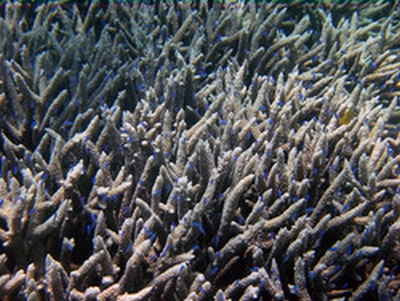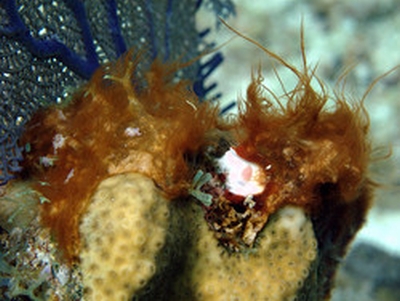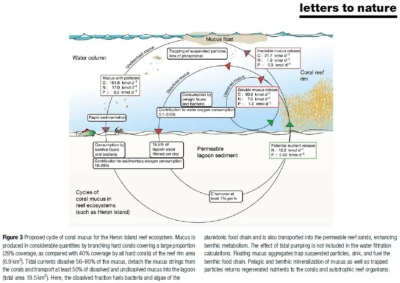Research
The department of Marine Ecology pursues an interdisciplinary approach and uses a range of appropriate tools from the fields of ecophysiology, biogeochemistry, and microbiology in order to address the following focal research areas:

Ecosystem engineers and other key organisms
We are investigating the impact of variable environmental factors (biotic and abiotic) and the influence of global (e.g. ocean acidification and warming) and local (e.g. eutrophication and overfishing) stressors on physiological processes (e.g. photosynthesis, growth, calcification, feeding and reproduction) of selected key organism groups (e.g. corals, sponges, algae), with emphasis on ecosystem engineers and their early life stages.

Dynamics of benthic communities
This theme addresses the sensitivity of benthic communities (coral reefs, seagrass meadows, rocky shores) to anthropogenic disturbances (such as climate change, overfishing and eutrophication). We thereby focus on the interactions between different functional groups to assess community dynamics and biogeochemical community responses to environmental changes.

Nutrient cycles and energy transfers
Here, we examine the transport and exchange of organic matter and energy between the water column and benthic communities as well as between benthic ecosystems. This research further allows to understand linkage and connectivity with adjacent marine and terrestrial ecosystems. Our focus lies on biogeochemical carbon and nitrogen cycles.
